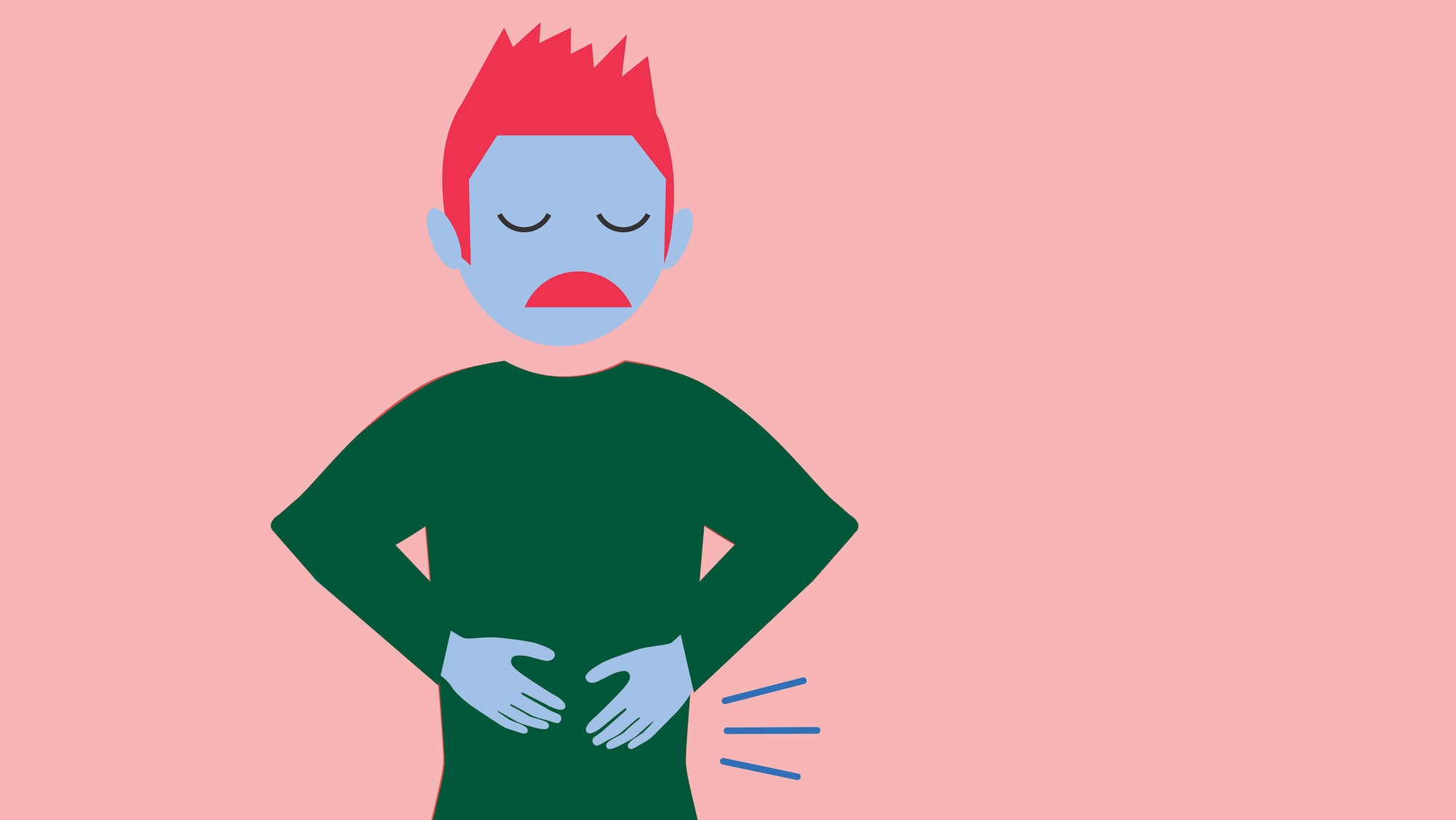

· By Alicia Stacey
IBS 101: What You Need to Know
Does it seem like almost everyone you know is struggling with IBS? That’s because it’s a pretty common disorder, affecting 1 in 5 people and 50 percent of people with gastrointestinal issues (and two times more women than men). Even with all of these people dealing with irritable bowel syndrome, there’s a bit of mystery associated with it—its causes and cure aren’t entirely definite.
What is definite, fortunately, is that there are ways to manage and even eliminate some symptoms of IBS. Read on to find out the symptoms and causes of IBS, and how to get relief.
What is IBS?
IBS stands for “irritable bowel syndrome.” It’s a disorder that affects the large intestine, causing various gastrointestinal issues. There are different types of IBS depending on your symptoms:
IBS-D
This type of IBS is characterized by diarrhea (loose or runny poop), going more than three times a day, and an increase in the volume of your stool.
There are ways to manage and even eliminate some symptoms of IBS.
IBS-C
People with IBS-C experience constipation (seeing a pattern here?). That means fewer than three bowel movements per week, hard stool, intestinal pain, and a feeling of fullness.
IBS-M
The “M” in IBS-M stands for “mixed.” IBS-M patients experience the symptoms of both IBS-D and IBS-C.
What are the symptoms of IBS?
These are common, general symptoms of IBS:
- Abdominal pain and cramps
- Flatulence
- Tenesmus (feeling like you have to poop when you don’t)
- Frequent bowel movements
- Fullness and discomfort
- Anal irritation
- Constipation
- Alternating between constipation and diarrhea.
Additionally, these comorbidities are common in IBS patients:
- Gynecological pain
- Migraines
- Depression
- Fatigue
- Circulatory disorders
- Irritable bladder
- Pain in the anus or rectum
What Causes IBS?
It’s not entirely clear what causes IBS. Some experts think that it’s due to a change in communication between the brain and the digestive tract. Other possible causes include disruptions in the production of messenger substances like serotonin and an increased sensitivity to the GI tract’s movement.
When Should You See a Doctor About IBS?
If you notice any of these symptoms, seek medical attention:
- Weight loss
- Fever
- Blood in the stool
- Greasy stool
- Anemia
In order to determine if you have IBS, other diseases have to be ruled out first. Your doctor may request these exams in order to confirm your diagnosis:
- A rectal exam
- Colonoscopy
- Blood tests
- Stool analysis
- Ultrasound
- X-rays
- Computed tomography
Fiber is helpful for IBS since it promotes gut health and intestinal function.
How Can You Treat IBS?
Since IBS has various causes and symptoms, there’s no specific treatment—nor are there any treatments that are 100 percent effective in getting rid of it. However, there are many ways for IBS patients to get partial or complete relief.
Drugs
There are a few different types of drug therapy that your doctor may suggest or prescribe to manage the symptoms of IBS. For example, probiotics can help regulate intestinal function, and antispasmodics may help with mild pain associated with IBS. For patients who experience depression associated with IBS, antidepressants may be prescribed.
A low FODMAP diet
In addition to eating more fiber, your doctor may suggest that you eat a diet that’s low in FODMAPs: Fermentable, Oligosaccharides, Disaccharides, Monosaccharides, and Polyols. This means cutting down on fast-fermenting carbohydrates like sweets, bread (especially wheat), dairy products, some types of fruit, or cabbage. Polyols (sugar alcohols) can be found in many industrially manufactured products with artificial sweeteners.
Eating a low FODMAP diet can help symptoms partially or even completely disappear. Then, after four to eight weeks, you can gradually begin to eat the restricted foods again. Your doctor or dietitian can help you establish a diet that works best for your symptoms.
Therapy
For psychological symptoms associated with IBS, relaxation therapy and stress management may help. In a study with IBS patients who were given placebo medication along with these therapies, 30 to 50 percent saw improvements to IBS symptoms.
Fiber
Fiber is helpful for IBS since it promotes gut health and intestinal function. However, the two different types of fiber—insoluble and soluble—have different effects. You should reduce your intake of insoluble fiber, which can contribute to imbalances in the way poop exits your body, but increase your soluble fiber intake because it nourishes the good bacteria in your gut.
Your doctor may recommend that you take a fiber supplement in order to make sure you’re getting enough fiber. Bellway, an all-natural fiber supplement, contains the soluble fiber that’s beneficial for IBS patients, with no artificial ingredients. Ask your doctor if it’s something you can incorporate in your diet to help with your specific IBS symptoms.
